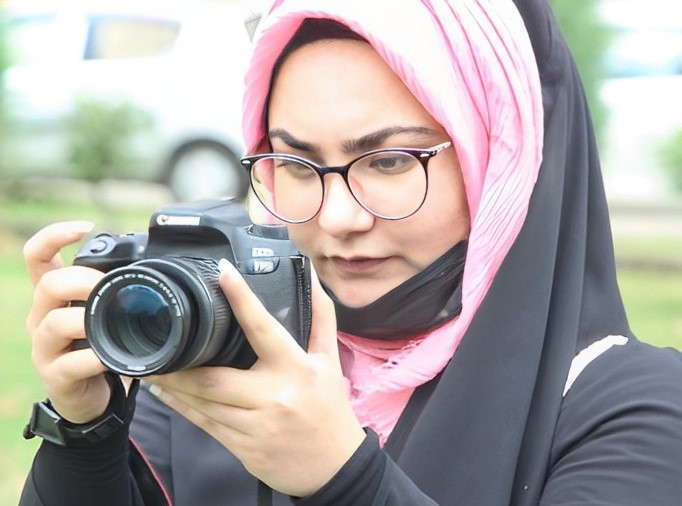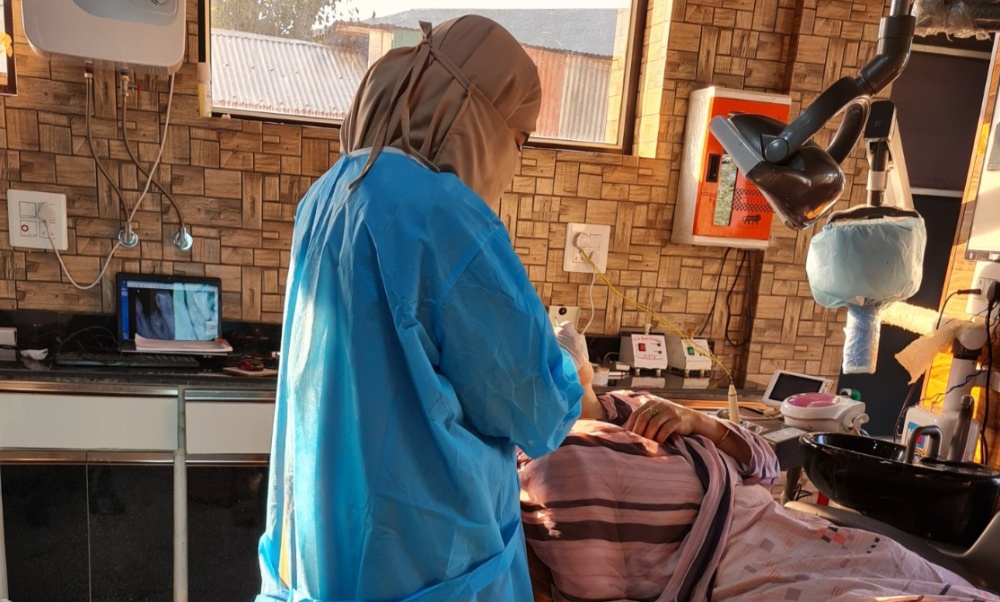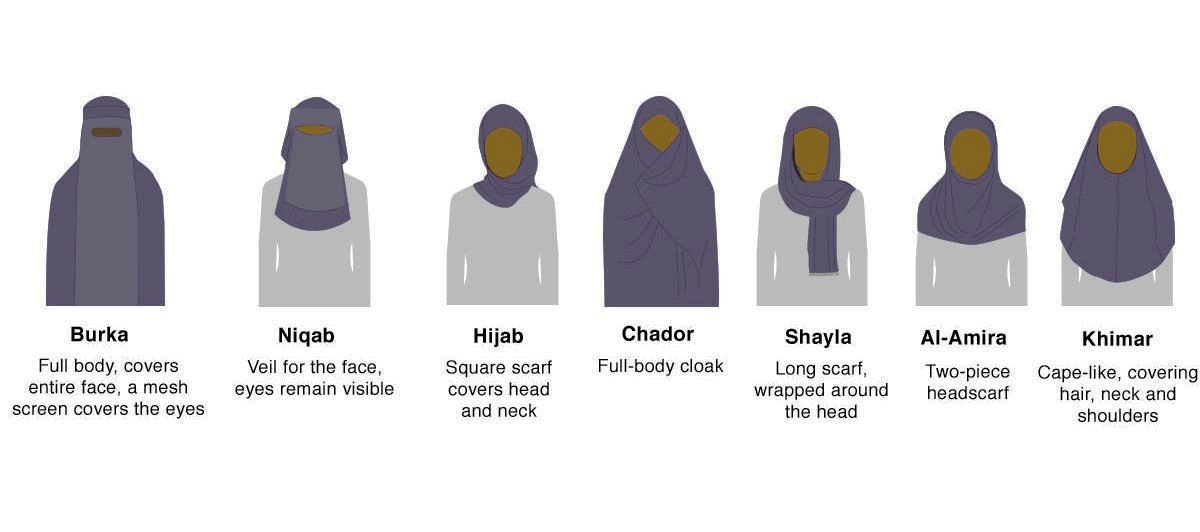A small section of young women have started wearing Niqab, even going against the wishes of their parents. Muskan Fatima met some of the women professionals to understand why they made a choice and how it works for them

Dr Aqsa Nourain excels in multiple domains as a dentist, calligrapher, and certified life coach in Islamic Psychology and personality development. She embodies versatility.
During the Covid19 lockdown, Aqsa devoted her time to honing her calligraphy skills. After the restrictions were withdrawn, she joined a clinic, where she continues to practice. Since she holds a diploma in Islamic Psychology, she conducts coaching sessions and teaches the Quran. This she does while wearing a Niqab.
Niqab, she emphatically asserts, has never acted as a barrier in her life. Instead, she believes people themselves create those barriers for women.
“My family is not supportive of my decision to wear the Niqab (but) I refuse to let others reduce me to a stereotype,” Aqsa said. “To me, Niqab is an essential part of my values, but it does not define my entire being. I am an individual with my imperfections, striving to grow.”
Niqab, she insisted, has consistently empowered her intellectually and spiritually. Throughout history, Muslim women like Fatima al-Fihri, the founder of the world’s oldest operating university, have made remarkable contributions in various fields, including medicine. “For me, Niqab serves as a constant reminder of my values, and I am honoured to embrace it,” she said. “The choice to wear the Niqab should be respected and celebrated. Niqab can be a source of empowerment and personal expression rather than oppression.”
Oppressive Symbol?
The Niqab, a veil worn by Muslim women in the presence of non-mahram, holds varying interpretations among scholars. While some view it as obligatory, others consider it recommended. Unfortunately, however, Niqab and Burqa have often been stereotypically associated with the oppression of women, although the validity of this statement is debatable. It is crucial to recognise that while some women may be forced to wear it, it is not the case for everyone.
Women who choose to wear Niqab find the choice empowering. This, however, leads to discrimination in a number of cases. However, the women who wish to work and contribute while in their veils hardly make a second choice.
The Henna Engineer
Sumaiya Magray, a former engineer turned freelance Henna Artist, proudly holds the distinction of being the first Kashmir-based artist specialising in Organic Henna. With a BTech from Kashmir University and an MTech from Punjab University, Sumaiya embarked on a unique path. In 2013, she decided to wear the Niqab, a choice that held deep significance for her.
While she found the Niqab to be beautiful, it was the untimely passing of her friend that acted as a catalyst in Sumaiya’s journey. Battling mental health issues, she sought solace in religion, and the Niqab became a means for her to get closer to her faith.
“I wore the Niqab even on my wedding, and my husband has been my unwavering support throughout this journey,” Sumaiya said. Her husband respects her decisions and ensures that she never compromises her values due to societal pressure. “Negative remarks have been hurtful, but ultimately, they have made me stronger.”
Sumaiya insists her Niqab has never hindered her; instead, it has bolstered her confidence. “I appreciate the power to choose who sees me and who doesn’t, as it grants me personal space. I refuse to conform to beauty standards dictated by society.”
Sumaiya strongly feels that the Niqab, in itself, is a powerful statement against the objectification of women. “A woman’s worth extends far beyond her appearance; she is an intellectual being deserving of education,” she said, asserting every single word. “A woman’s aura, personality, and mindset hold greater significance than her physical beauty. Women should educate themselves and boldly wear their decisions, unapologetically, with the sole condition of seeking approval from their Creator.”
Discrimination
The discriminatory experiences faced by Muslim women are a new global norm. According to the American Civil Liberties Union (ACLU), 69 per cent of women who wear the Hijab reported incidents of discrimination, compared to 29 per cent of women who do not.

Several countries, including France, Bulgaria, Denmark, and China, have banned the Burqa and Niqab. The media’s populist narratives only contribute to the fuel. However, the roots of this discrimination run deep, stemming not only from non-Muslims but also from within the Muslim community itself.
Western influences and a lack of authentic knowledge among Muslims have led to a blend of culture and religion, causing discomfort with symbols that visibly mark them as Muslims. A veiled woman defies Western standards of liberation and asserts her identity by rejecting society’s tailor-made norms.
Sumaiya Magray said that society must understand the Niqab’s significance as a symbol of identity, empowerment, and faith.
Clicking Behind The Veil
Aaisha Irtika, a Niqabi Journalism graduate from the MA Road Women’s College found her true passion in wedding photography rather than writing. Over the years, she carved a niche for herself in this field.
“Wedding photography is predominantly male-dominated, and as a woman who wears the Niqab, people often underestimate my potential and skills.” she expressed, her voice filled with disappointment.
However, she chooses not to pay heed to such negativity and let it impact her work. Many women feel uncomfortable with men around them on their wedding day, and as a woman in this field, she strives to provide a solution to that.

“The Niqab has granted me immense power and has facilitated my everyday communication with people. Previously, I was quite shy, but the Niqab instilled self-assurance in me”, Aaisha now focuses less on how she looks and more on delivering her work.
Contrary to how the media portrays it, Aaisha believes, the Niqab can be liberating and empowering. “People have to engage with my intellect, and to me, this is a fight against the systemic oppression of women, where their bodies are objectified and their objectification is glorified.”
Not Hive Baking
Tahleel Fatima, the founder of The Bake Hive, a thriving home bakery she currently runs online, envisions expanding her business in the near future to generate employment opportunities for women. With a BTech degree in Food Technology, she embarked on her entrepreneurial journey recently.
“My Niqab journey began not long ago, and I vividly remember starting to wear it on my birthday,” Tahleel revealed. “It felt like a gift I gave myself, and I surprised my father with it.”
She was disheartened by his, as well as her family’s, lack of support. She found herself perplexed that people claim to be open-minded but hold biases against those who strive to follow their beliefs.
The Niqab holds immense significance for Tahleel, as, she believes, it diminishes the objectification of women. “I am not reduced to a mere visual object; what I say holds more value than how I look. It provides me with a sense of safety and comfort.” She understands the purpose behind why she wears it, “and I do not feel the need to justify it to the world.”
People should respect it and refrain from belittling women in the name of empowerment.”, she concluded.
A general impression is that the veil is isolating the wearer. One user said the fact is otherwise. “We see everything, we talk to everybody and we pick the knowledge we wish to while being in a veil,” the lady said. “The only difference is that we do not let people see our bodies, the rest is normal.”
A number of women believe that young veiled women tend to get less attention in public spaces than others. Some young college students have put in battles with their parents to adopt purdah. That, however, is a different story.















